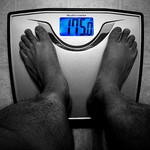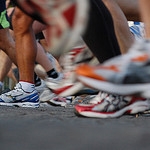Self Monitoring for Weight Loss
Posted by Janine Wong MS, RD on October 29, 2012

The Starting Line: What self-monitoring methods are available to help me lose weight? Self monitoring is regularly recording your dietary intake, physical activity, and weight. Studies consistently show that overweight and obese people who self monitor will lose more weight than those who do not. While the optimal level of self monitoring has yet to be determined, increased frequency of self monitoring is ass...
Dietary Nitrates and Cardiorespiratory Function
Posted by Andrea Hacker MS, RD on October 22, 2012

The Starting Line: Can adding beets to your diet improve performance? Proper cardiovascular functioning requires nitrite and nitric oxide, byproducts of the nitrates in our diet. Nitric oxide has long been recognized as a potent vasodilator, and recent studies have confirmed that this effect can lower blood pressure in individuals without hypertension. Two research groups have looked deeper into the effect o...
The Basics of Weight Loss - Practical Strategies
Posted by Janine Wong MS, RD on October 15, 2012

The Starting Line: What is the best way to approach safe weight loss? The science of weight loss is simple: burn more calories than you consume. This caloric deficit can come from a combination of exercise and dietary modification. According to the CDC, roughly one pound of weight is equal to 3500 calories; therefore a caloric deficit of 500 calories per day will lead to 1 pound of weight loss per week. Healt...
Fighting Jet Lag for Runners
Posted by Anthony Luke MD, MPH on October 9, 2012

The Starting Line: How can I combat jet lag when traveling for a race? With the New York City Marathon coming up in just a few weeks, it’s a good idea to prepare for one of the oft-neglected aspects of racing: jet lag. Many runners travel long distances, spending hours in the airport and airplane, only to race or train while jet lagged. Jet lag results from extensive travel over several time zone...
Cadence Manipulation Effects on Impact Injuries
Posted by Rich Souza PT, PhD on October 1, 2012

The Starting Line: Can cadence manipulation help prevent running injuries? When runners run with long slow strides, they tend to land on straight stiff knees. This pattern results in large impact forces that propagate up the leg. Such large impacts during a repetitive activity like running add up, and may lead to injuries such as stress fractures and joint problems in some runners. Cadence manipulation - int...

